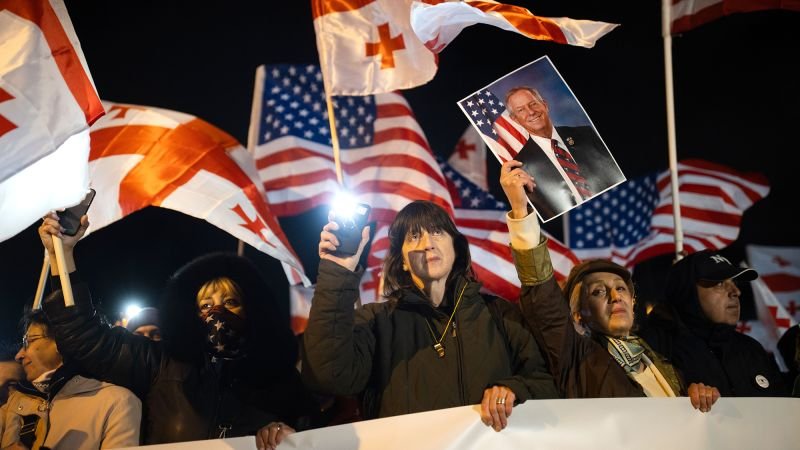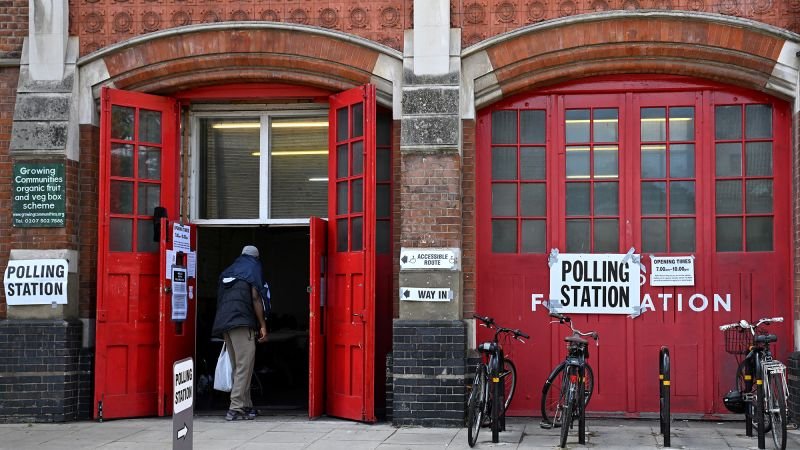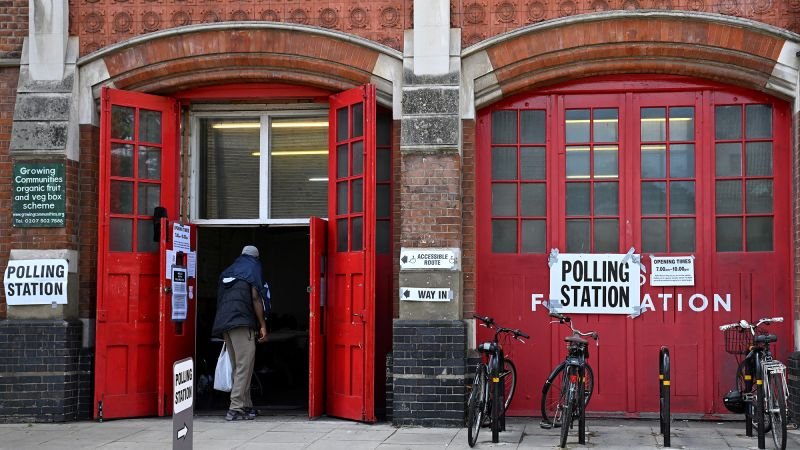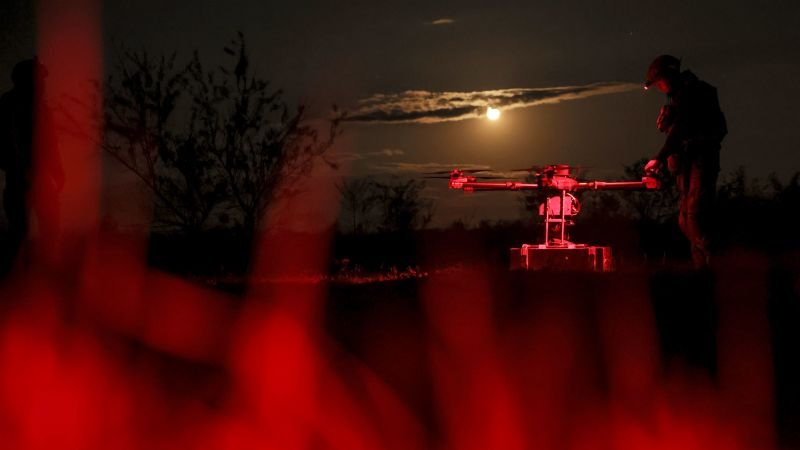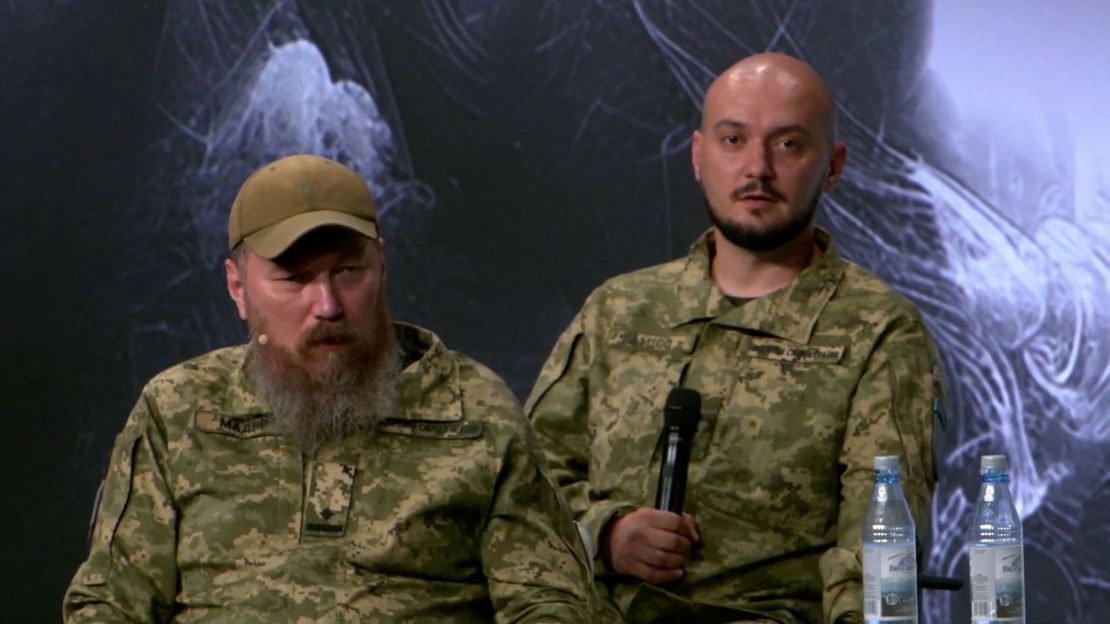Editor’s Note: Jill Dougherty is a former CNN Moscow bureau chief, an adjunct professor at Georgetown University and a CNN contributor on Russia.
CNN
—
A decade ago, Georgia was the poster child of post-Soviet countries on their way to democracy and freedom. The government was taking steps to fight corruption. Civil society was blossoming. The economy was growing. American businesses were investing.
In 2004, even though it was not a member of NATO, Georgia sent its soldiers to Afghanistan to join the United States and other members of the International Security Assistance Force (ISAF), becoming the largest non-NATO contributor to the operation. In 2005, US President George W. Bush visited the capital, Tbilisi, and the highway leading to the airport was renamed “George W. Bush Street.”
That street sign is still there, but today, democracy in Georgia, a small but strategically located nation of 3.7 million people, is collapsing. On Capitol Hill, in a bipartisan effort, Republicans and Democrats are pushing for passage of the Megobari Act.
In the Georgian language, “megobari” means friend, and its sponsors say it aims to bolster democratic practices, human rights, and the rule of law in Georgia. It would impose US sanctions, visa bans and asset freezes on officials judged to be responsible for election fraud, corruption and political repression. But, the American lawmakers warn, Georgia is quickly slipping under the influence of Russia, China and Iran.
Last December, the US imposed sanctions on Georgia’s shadow ruler, Bidzina Ivanishvili, a billionaire who made his fortune in Russia in the 1990s. The party he founded, named Georgian Dream, controls all branches of government. Almost all political opposition leaders are in jail; according to human rights groups, about 60 political prisoners languish in prison.
For more than 200 days, protesters have filled Tbilisi’s main street, carrying Georgian, American and European Union flags.
Many now wear masks, trying to avoid being identified by what anti-corruption groups say are increasing numbers of Chinese-made facial recognition cameras installed by the government. Violators of what rights group Amnesty International says is repressive new legislation to crack down on dissent can be fined up to the equivalent of $2,000.
A spokesperson for Georgian Dream had no comment for CNN on the issue of Chinese-made cameras being used for surveillance.
Protesters have been violently arrested and tortured, according to Transparency International, one of the anti-corruption groups. The US last year imposed sanctions on Georgia’s then-Minister of Internal Affairs, Vakhtang Gomelauri, for “brutal and violent crackdowns on members of the media, opposition, and protesters.”
The protests were mainly peaceful, Levan Makhashvili, a member of the Georgian Dream party and the chairman of the Georgian Parliament’s European Integration Committee, told CNN on Tuesday. He claimed, however, that there were some violent protesters and said they should be prosecuted. “There is a law: if you challenge state institutions, if you challenge the country, well, then you have to be ready for the liability,” he said. “If you storm the US Capitol you get liability, if you storm any parliament in the European Union you get liability. It’s normal.”
Georgia held parliamentary elections last October which international election observers declared neither free nor fair. The opposition decided to boycott the new parliament and, with no one to stop the Georgian Dream legislators, they railroaded through what observers say are a series of draconian, Russian-style laws that have deeply polarized Georgian society and strained ties with key Western allies.
The European Parliament last week adopted a report that said the rigged elections had “marked a clear turning point towards an authoritarian government in the EU candidate country,” a news release said, and called for new elections and a return to the path of democratic reform.
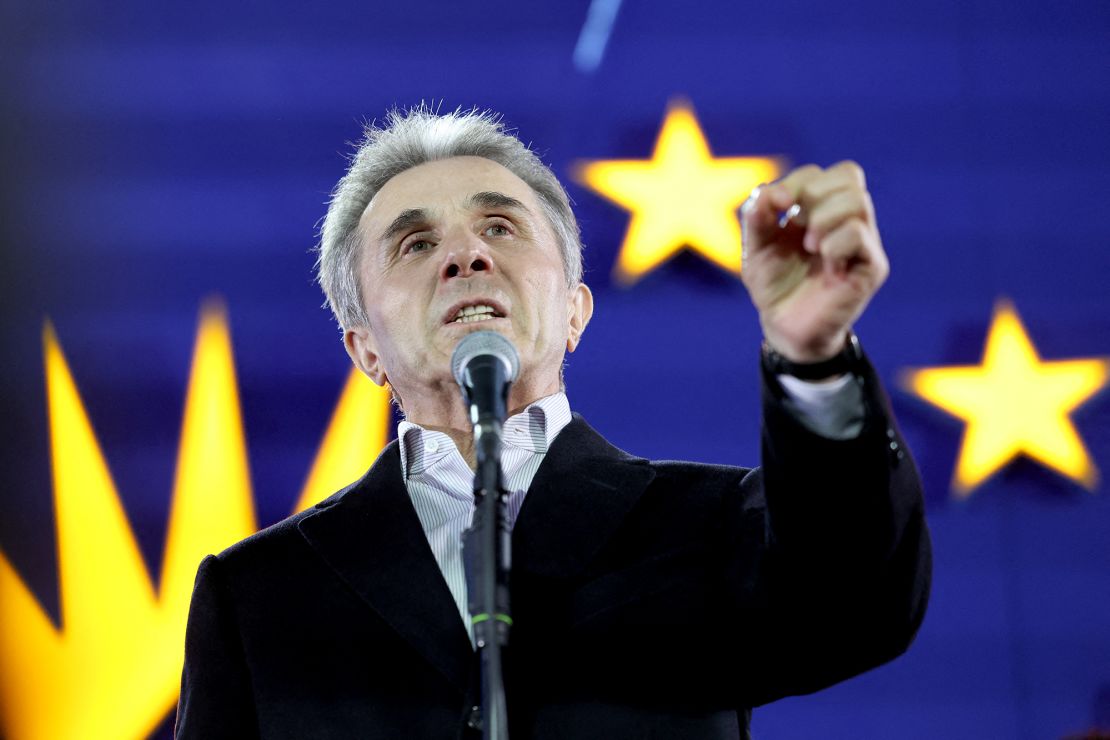
China’s influence in Georgia is growing as well. Last year, the government cancelled a contract with a Georgian, US and European consortium to construct the Anaklia deep-sea port on the Black Sea. Instead, it gave the contract to Chinese state-affiliated companies, some of which are under US sanctions.
The Georgian Dream also is finding friends in Iran. In May last year, Georgia’s then newly appointed Prime Minister Irakli Kobakhidze flew to Tehran to attend the funeral of Iranian President Ebrahim Raisi, joining the leaders of Hamas and Hezbollah for the funeral procession. In July, he returned for the inauguration of Iran’s new president.
Trade between Iran and Georgia is burgeoning, primarily due to the latter country’s imports of Iranian oil and petroleum products. An investigation by a Georgia-based NGO, Civic IDEA, reports that, “as diplomatic ties between the Georgian Dream government and Iran have grown closer, several Georgian-registered companies have emerged with direct links to Iran’s Ministry of Defense and the Armed Forces Logistics Agency.”
The investigation concludes that “Iranian businessmen are using Georgia as a strategic transit point to evade international sanctions and channel funds back to the Islamic Republic of Iran.”
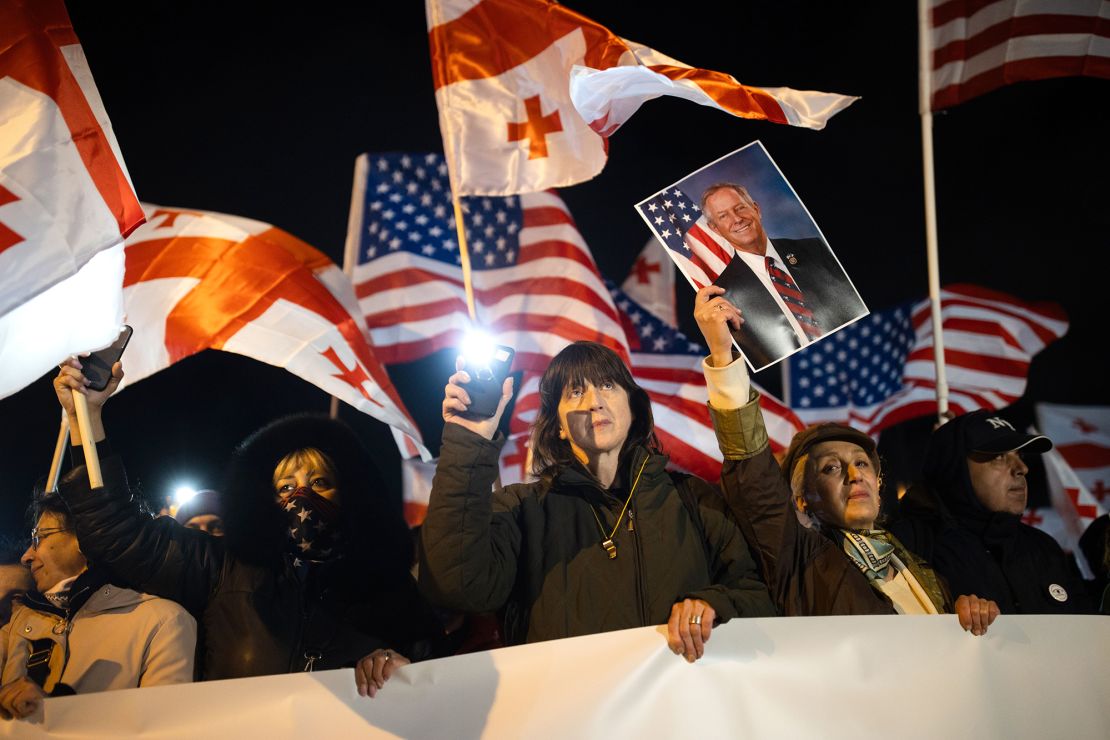
Georgia’s once-strong relationship with the United States is disintegrating. The outgoing US Ambassador to Tbilisi, Robin Dunnigan, decries what she describes as the government’s “anti-American rhetoric.” In an interview with RFE/RL she said Georgian Dream leaders had sent a private letter to the Trump administration that was “threatening, insulting, unserious, and was received extremely poorly in Washington.”
Makhashvili, of the Georgian Dream, blames the deterioration on the Biden administration. “We were very surprised by the former ambassador’s statement,” he told CNN. “We had a feeling that many people simply don’t want these ties to be reinvigorated, and they are trying to install as many blockades or hindering factors as possible.”
Georgia is “more than ready to cooperate” with the Trump administration, he insists, and has made it “explicitly clear” that it wants “to reinvigorate these ties with the United States’ new administration – be it trade, economy, transportation, logistics, all sorts of areas where the United States is interested, especially in this part of the world.”
In spite of their government’s increasing alignment with Russia, the Georgian people overwhelmingly support integration with the West. The Georgian Constitution includes a mandate to pursue full integration with the European Union and NATO. In November 2024, however, the Georgian Dream-controlled government, while insisting it still intends to move forward on EU accession, suspended its efforts, a decision that the US State Department warned would make Georgia “more vulnerable to the Kremlin.”
Russia’s full-scale invasion of Ukraine in February 2022 provided the Georgian Dream with a powerful but paranoid message: that the West is trying to drag Georgia into the war. The anti-war message has resonance with many Georgians: Georgia itself was invaded by Russia in 2008 and Russia still occupies two regions comprising about 20% of the country’s internationally recognized territory. Ivanishvili and his Georgian Dream party have sharpened that allegation, claiming, without evidence, that what they call the “global war party” or “deep state” is trying to incite revolution in Georgia.
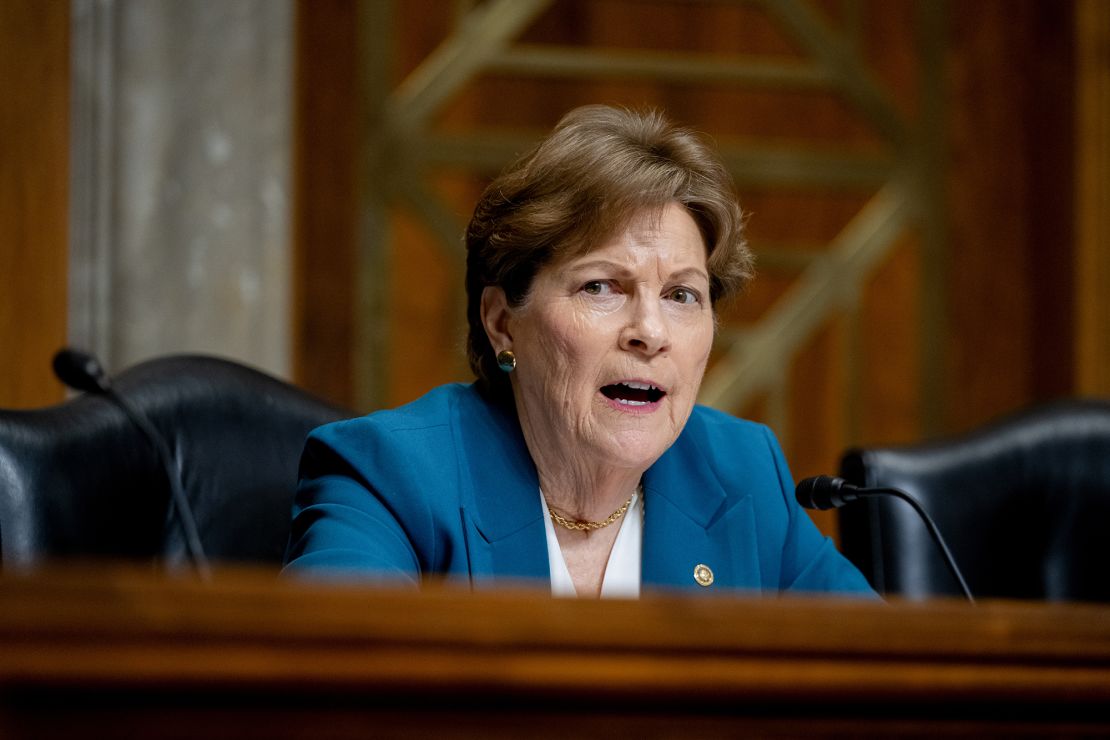
The Megobari Act, with the stated aim of countering the influence of China, Iran and Russia in Georgia, is sponsored in the US House of Representatives by Joe Wilson, a Republican from South Carolina, and in the Senate by Jeanne Shaheen, a New Hampshire Democrat. The bill has passed in the House and has been introduced in the Senate. If it passes in the Senate, it goes back to the House if amendments have been made, then to President Donald Trump for his signature. Its supporters are urging quick passage.
“The Georgian people have made clear their Euro-Atlantic aspirations, and the U.S. must continue to support them against Georgian Dream efforts to erode their democratic institutions,” said Shaheen, in an interview with CNN. “At a time when Russia seeks to undermine democracies across the region, we cannot turn our backs on a key partner striving for a free and democratic future.”
Georgians themselves say the bill could be a powerful weapon to pull Georgia back from the brink. “When sanctions don’t just signal – but sting – oligarchs notice,” said Zviad Adzinbaia, doctoral fellow at the Fletcher School of Law and Diplomacy at Tufts University, “and in this case, they’re sweating.”
Makhashvili brushed off any possible threat from the Megobari Act, but acknowledged concern “that of course this act is a kind of symbol that we have several voices in the United States Congress who, for whatever reason, are not interested in normal ties with Georgia.”
Other Georgians warn that members of the opposition, under severe threat from the government, are still divided by disparate views of how to fight back. The current debate centers on whether opposition parties should participate in nationwide municipal elections due to be held in October.
Ia Meurmishvili, editor-in-chief of the international journalism initiative, Independence Avenue Media, told CNN: “Elections are the foundation of all democracies and the only legitimate way to change governments. If Georgia’s opposition chooses to boycott the vote, it risks sending a confusing signal to international democratic supporters – who may struggle to understand why a key democratic mechanism is being abandoned.”
Giorgi Gakharia, a former prime minister of Georgia and a leader of the opposition party For Georgia, is in the crosshairs of the Georgian Dream party. Authorities have charged him with treason, which most Western observers describe as a politically motivated offensive. He is facing up to 15 to 20 years in prison and is currently located outside of Georgia. His party says upcoming municipal elections in October “may well be the last democratic battleground to halt Georgia’s slide into authoritarianism.”
He told CNN: “While the Megobari Act offers hope for strengthened Western engagement, international pressure alone cannot reverse Georgia’s current trajectory. The regime is aggressively working to eliminate all credible alternatives, but I am convinced that Georgian society has the determination and courage to resist, and to reclaim our rightful place in Europe, so long as the world remains engaged and vigilant.”

